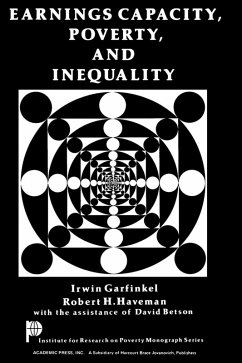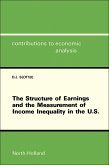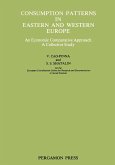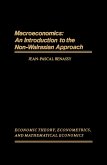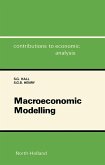Earnings Capacity, Poverty, and Inequality describes the development and application of a way to measure economic status that will avoid some mistakes occurring in methods of measurement. The book reviews the concept of earnings capacity through different measures of economic status. The authors discuss the procedures used in estimating family revenue, sources of data, and inherent weaknesses in such measures. They consider the degree to which different groups classified by age, sex, race, or economic status use their earnings capacity. The authors compare income utilization of those who are considered poor using both measures of earning capacity and current income. Then, a common government and academic policy known as the target efficient - the proportion of total benefits allocated to poor families - is discussed. The authors cite two important factors: 1) estimates of target efficiency are affected by how poverty is defined and 2) target efficiency of transfer programs changes when the economic status method is used instead of the income method. The authors also examine the effects of labor market discrimination on the earning differences between two races. The text will prove useful for sociologists, psychologists, economists, and students of political science and population demographics.
Dieser Download kann aus rechtlichen Gründen nur mit Rechnungsadresse in A, B, BG, CY, CZ, D, DK, EW, E, FIN, F, GR, HR, H, IRL, I, LT, L, LR, M, NL, PL, P, R, S, SLO, SK ausgeliefert werden.

